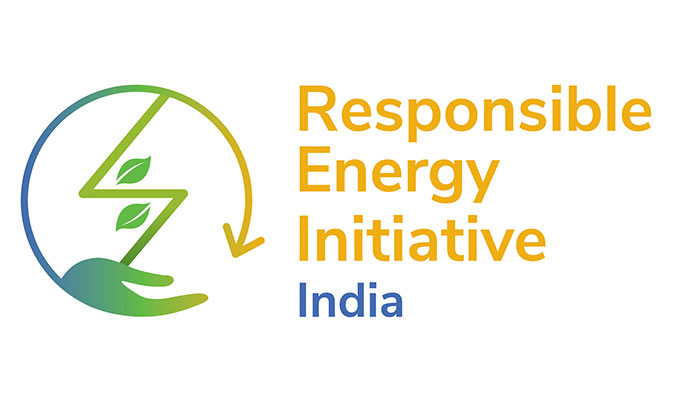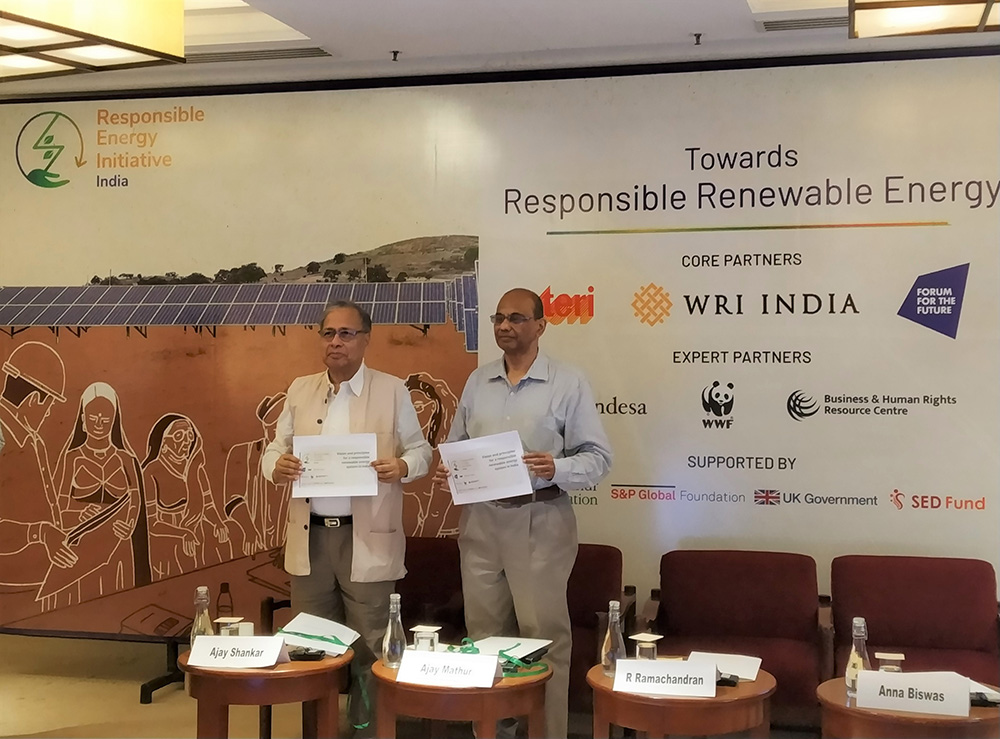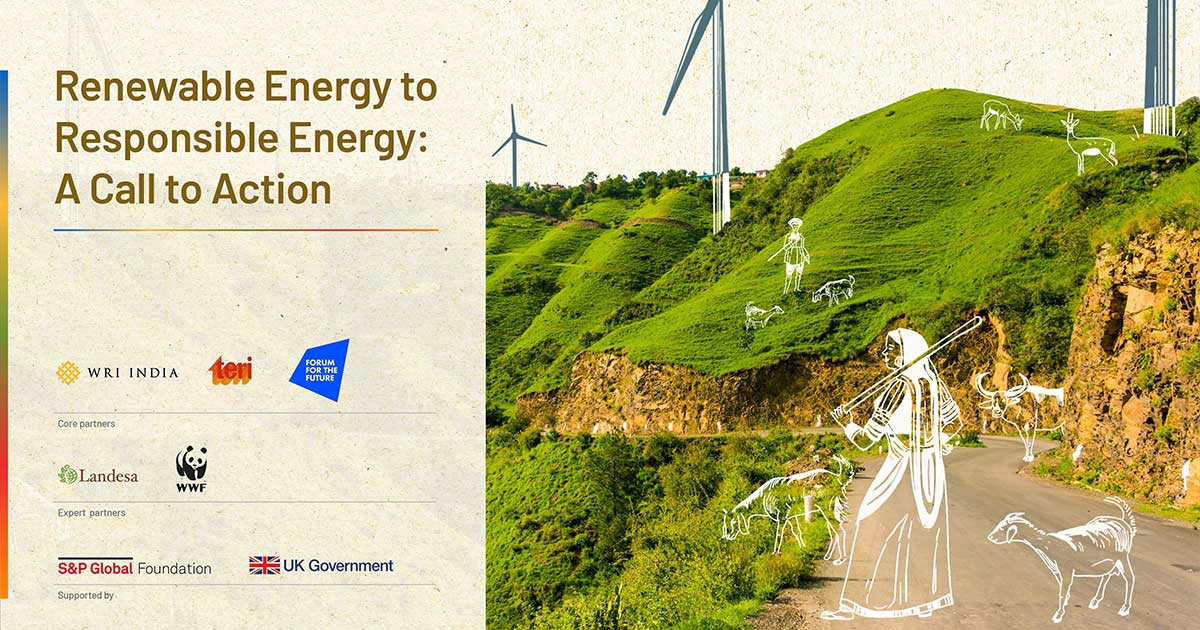The Responsible Energy Initiative

The Responsible Energy Initiative is a futures-led collaborative inquiry into how the renewable energy sector in India and Asia can scale in an ecologically safe and socially just way
The Responsible Energy Initiative aims to enable the renewable energy sector in the Asia Pacific region to adopt business models and value chains that are ecologically safe, rights respecting and socially just. The initiative aims to engage with investors, developers, manufacturers, large procurers, together with other pertinent actors in the renewable energy sector to identify, set and action new norms. In India, the core partners for the Renewable Energy Initiative are The Energy and Resources Institute (TERI), Forum for the Future and World Resources Institute (WRI India), with expert support from Landesa, WWF-India and the Business and Human Rights Resource Centre (BHRRC).
The challenge
The rise of renewables has brought great hope for our ability to tackle climate change. Scaling renewable energy is critical to the rapid transition to a low carbon economy and has the potential to expand access to affordable, clean energy; create jobs and help economies to thrive; and reduce air pollution, a primary concern for urban citizens in Asia.
This is a critical moment in the development of the sector. Renewable energy is scaling rapidly; financing models are shifting from public to private; and policy and regulatory mechanisms are changing. Economic stimulus packages are being developed to support recovery from COVID-19, with many focused on building the industries we need to ride the shocks of the future, including renewable energy.
At the same time, we are seeing significant risks emerge that the industry may scale in a way that does not account for environmental, social and human rights impacts across the industry value chain, particularly in the race to revive failing economies impacted by the pandemic. From land and labour rights and local livelihood challenges to impact on biodiversity, the potential negative impacts of the large-scale implementation are becoming increasingly clear.
Unless the potential negative social and environmental impacts are adequately addressed, the growth of the sector in Asia-Pacific and across the World may be put in jeopardy, which would be unacceptable from a climate perspective.
Key objectives and outcomes
The Responsible Energy Initiative brings together renewable energy companies, investors and procurers to:
By paying attention to all ESG impacts, the renewables sector in Asia will be better able to operate sustainably and ensure access to long term finance, enhancing its ability to accelerate the clean energy transition and also secure its own resilience.
- Establish a systemic understanding of the implications of inaction, barriers to integrating ESG into business models and governance, and opportunities for shifting mindsets and behaviours such that the sector can accelerate and be a net positive force in achieving a sustainable future.
- Identify ways to transform business models, practices (including governance around investment) and the system participants operate within so that the sector is better placed to deliver long-term value for both society and shareholders.
- Pilot interventions that demonstrate a shift in business models, practices and the wider system. These shifts will be in both how the renewable energy industry responds to its environmental and social impacts, and the wider system, including investors, policy makers, financiers and those procuring renewable energy encouraging and incentivising just and regenerative approaches to ESG.
- Support the scaling of approaches that enable the acceleration of renewables across the Asia Pacific region in a fair and just way by curating multi-country learning and insights to share and engage a wider group of renewable energy stakeholders across the region.
Accelerating the Growth of Responsible Renewable Energy: Launch of Vision and Principles
The Responsible Energy Initiative- a futures led inquiry by The Energy and Resources Institute (TERI), Forum for the Future, WRI India and expert partners BHRRC, WWF India, and Landesa launched its Vision and Principles.

The rapid rise of renewable energy (RE) is a keystone element of our transition to a low carbon economy in India and globally. Scaling RE has the potential to expand access to affordable, clean energy, enable thriving economies, and reduce air pollution. As the RE sector continues to grow, it will need to be increasingly mindful that adverse impacts on the environment, communities and human rights do not arise from its operations and value chain.
The Vision and Principles aim to act as a guiding light for the actors working in the RE value chain as they work towards transitioning it to a socially just, inclusive, environmentally safe, and responsible energy.
Report: Renewable Energy to Responsible Energy: A Call to Action
The report launched in March 2021 analyses the environmental and social risks and impacts associated with the production and deployment of renewable energy through select technologies in India.

An overview of the report's findings -
- It identifies multiple players in the growing RE market landscape and outlines their roles in the 450 GW transition. It draws attention to the current ways in which the RE sector is governed by multiple state actors; the important role played by the judiciary as well as civil society in providing accountability mechanisms, and the currently limited role of corporate governance in this respect.
- It details the key environmental and social impacts emerging in the value chain that must be addressed –including land-use changes, labour and human rights, impacts on local and regional biodiversity, water risk and energy justice.
- It examines the extent to which key market actors –including RE developers, investors, financiers and large procurers –have been responding to these impacts. It highlights where these actors have taken steps to recognize and address the environmental and social impacts in RE value chains, and where further action is needed to enable and incentivize the sector to achieve its full potential in being just and regenerative.
- It builds a case for deeper collective inquiry into the barriers to, and opportunities for, establishing and embedding just and regenerative behaviours, and makes a call to action.
Read the executive summary here and access the full report here
